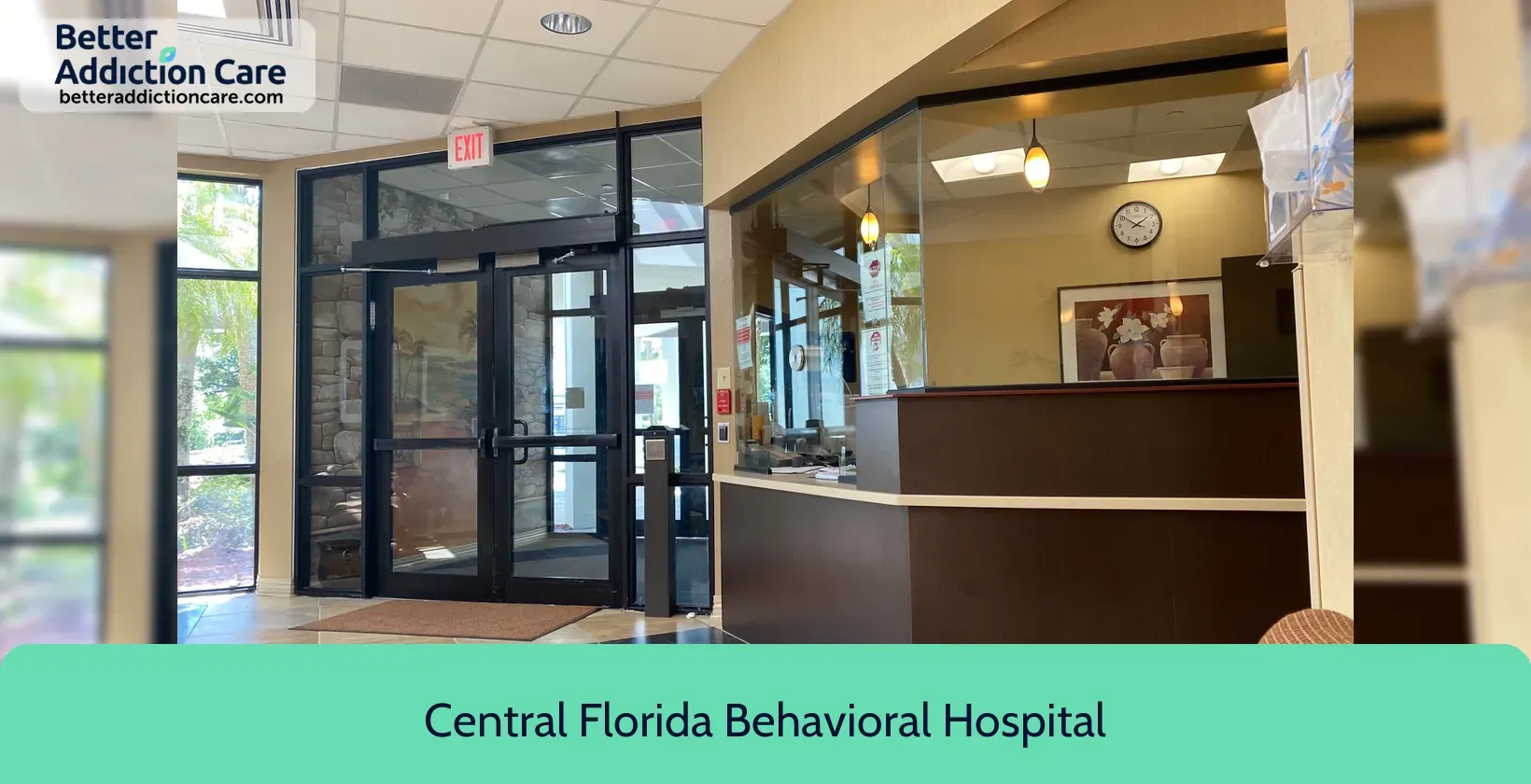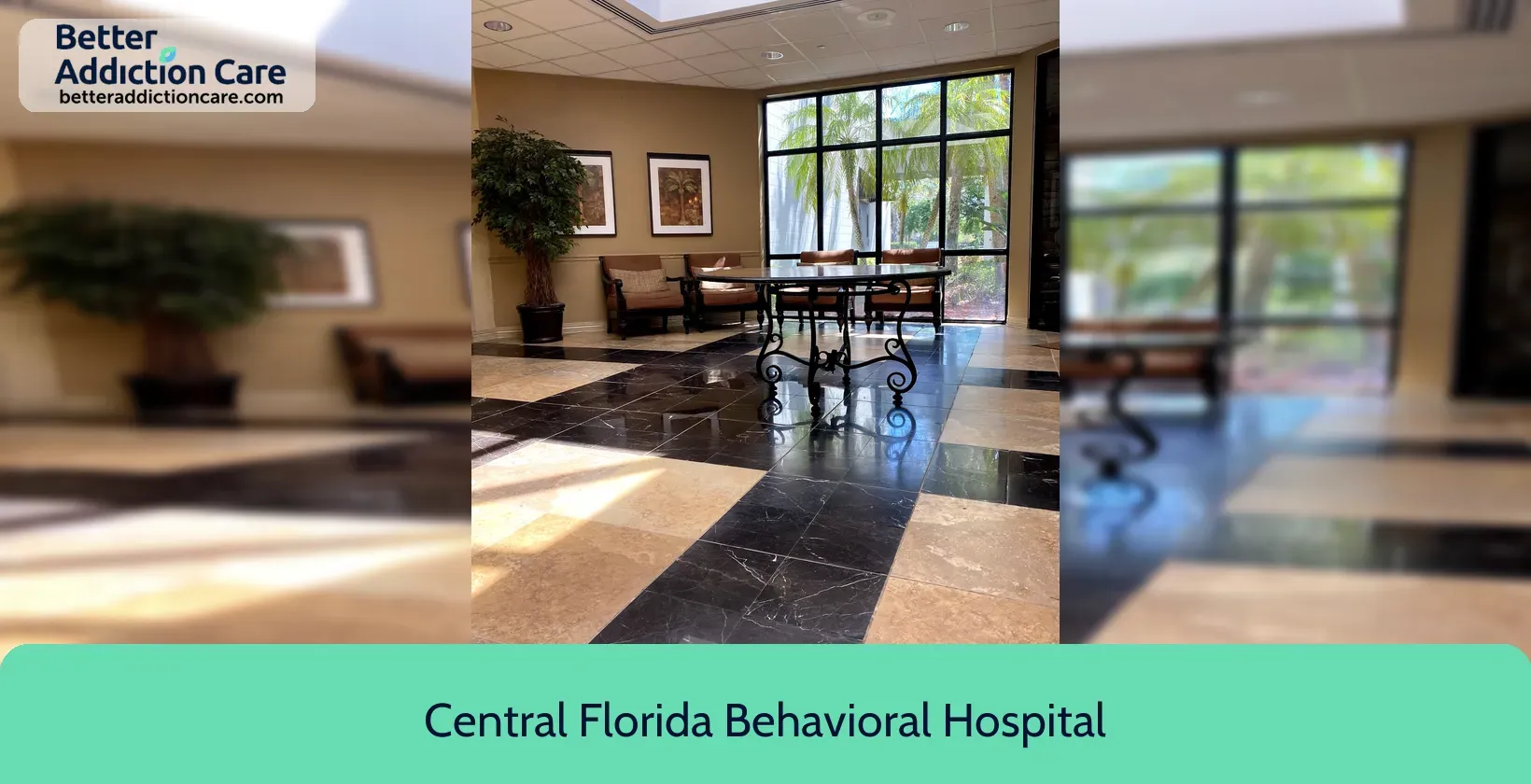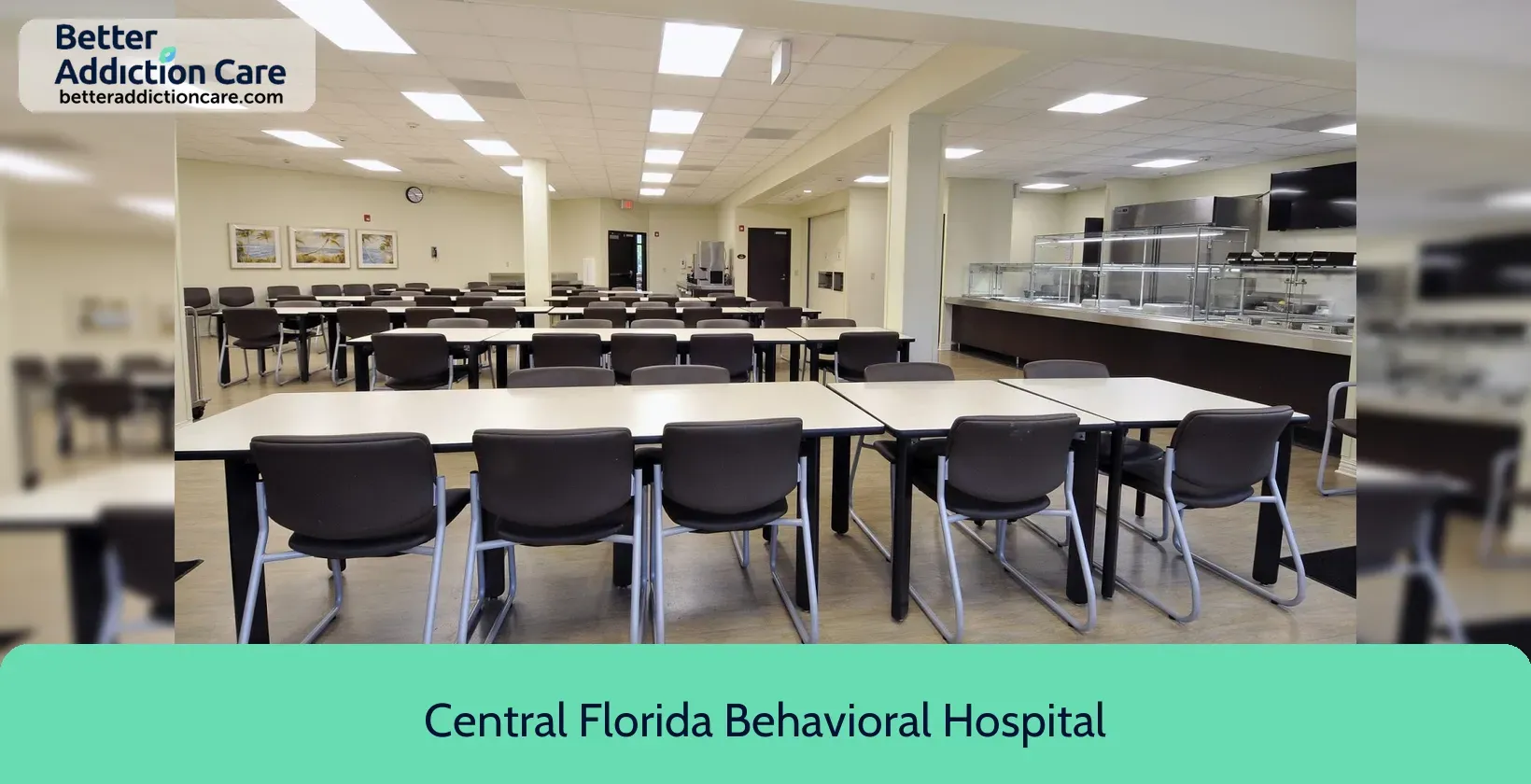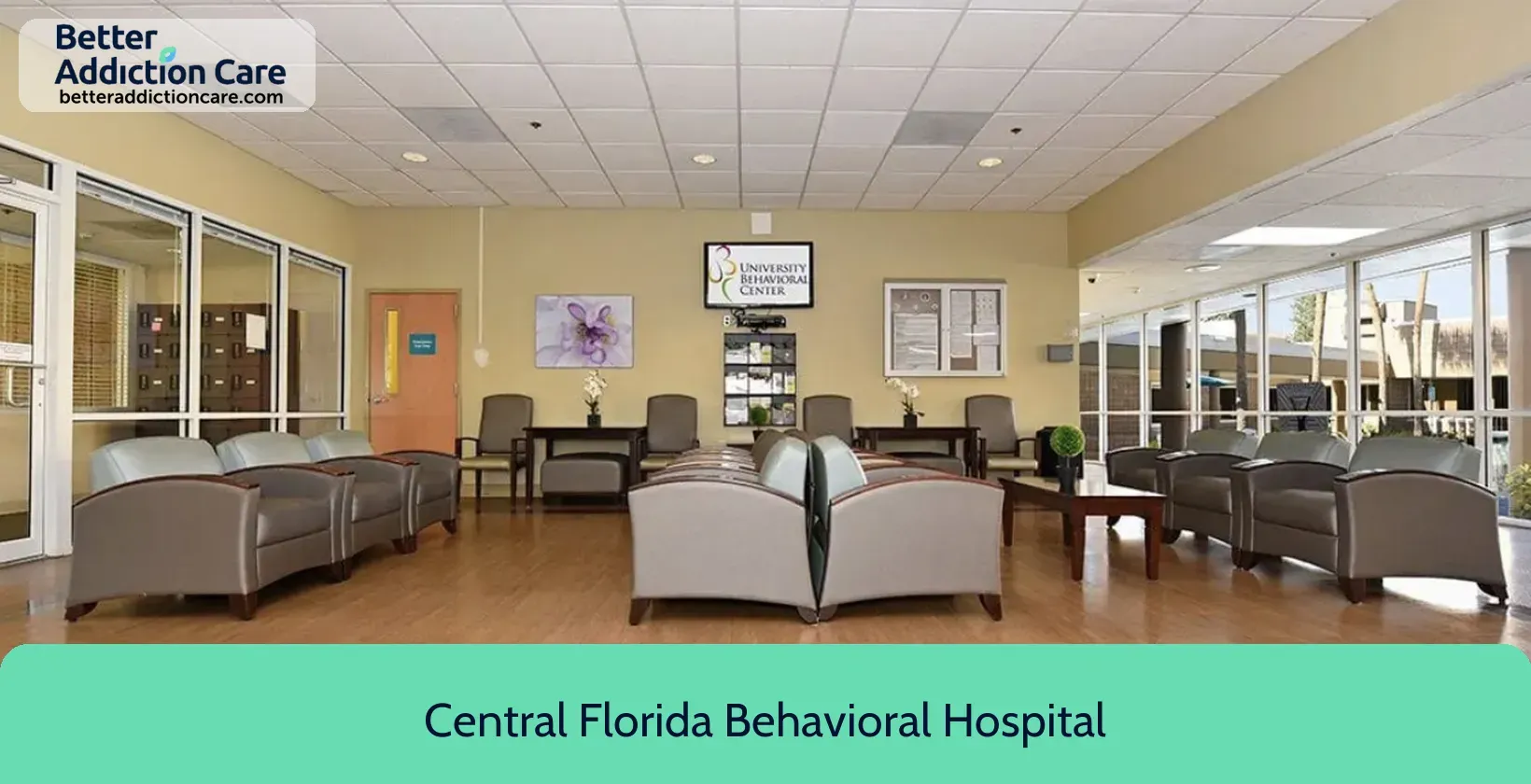Central Florida Behavioral Hospital
Overview
Central Florida Behavioral Hospital is an substance abuse treatment center that provides inpatient treatment for men and women from 18+ years of age. As part of their special programs, Central Florida Behavioral Hospital treats clients with hiv or aids, children/adolescents with serious emotional disturbance (sed), and active duty military. To help patients achieve sobriety, Central Florida Behavioral Hospital provides intake assessments. Afterward, patients receive family counseling, cognitive behavioral therapy, and electroconvulsive therapy during treatment. Central Florida Behavioral Hospital is located in Orlando, Florida, providing treatment for people in Orange County, accepting medicaid, private health insurance, and cash or self-payment.
Central Florida Behavioral Hospital at a Glance
Payment Options
- Medicaid
- Private health insurance
- Cash or self-payment
- U.S. Department of VA funds
- Medicare
Assessments
- Comprehensive mental health assessment
- Comprehensive substance use assessment
Age Groups
- Adults
- Children/adolescents
- Young adults
Operation
- Private for-profit organization
Highlights About Central Florida Behavioral Hospital
6.68/10
With an overall rating of 6.68/10, this facility has following balanced range of services. Alcohol Rehabilitation: 8.00/10, Drug Rehab and Detox: 6.00/10, Insurance and Payments: 6.00/10, Treatment Options: 6.73/10.-
Alcohol Rehabilitation 8.00
-
Treatment Options 6.73
-
Drug Rehab and Detox 6.00
-
Insurance and Payments 6.00
Treatment At Central Florida Behavioral Hospital
Treatment Conditions
- Mental health treatment
- Substance use treatment
- Co-occurring Disorders
Care Levels
- Hospital inpatient treatment
Treatment Modalities
- Family counseling
- Cognitive Behavioral Therapy
- Electroconvulsive Therapy
- Group counseling
- Experiential Therapy
Ancillary Services
Languages
- Sign language services for the deaf and hard of hearing
- Spanish
Special Programs
- Clients with HIV or AIDS
- Children/adolescents with serious emotional disturbance (SED)
- Active duty military
- Clients who have experienced trauma
Get Help Now
Common Questions About Central Florida Behavioral Hospital
Contact Information
Other Facilities in Orlando

7.13

7.97
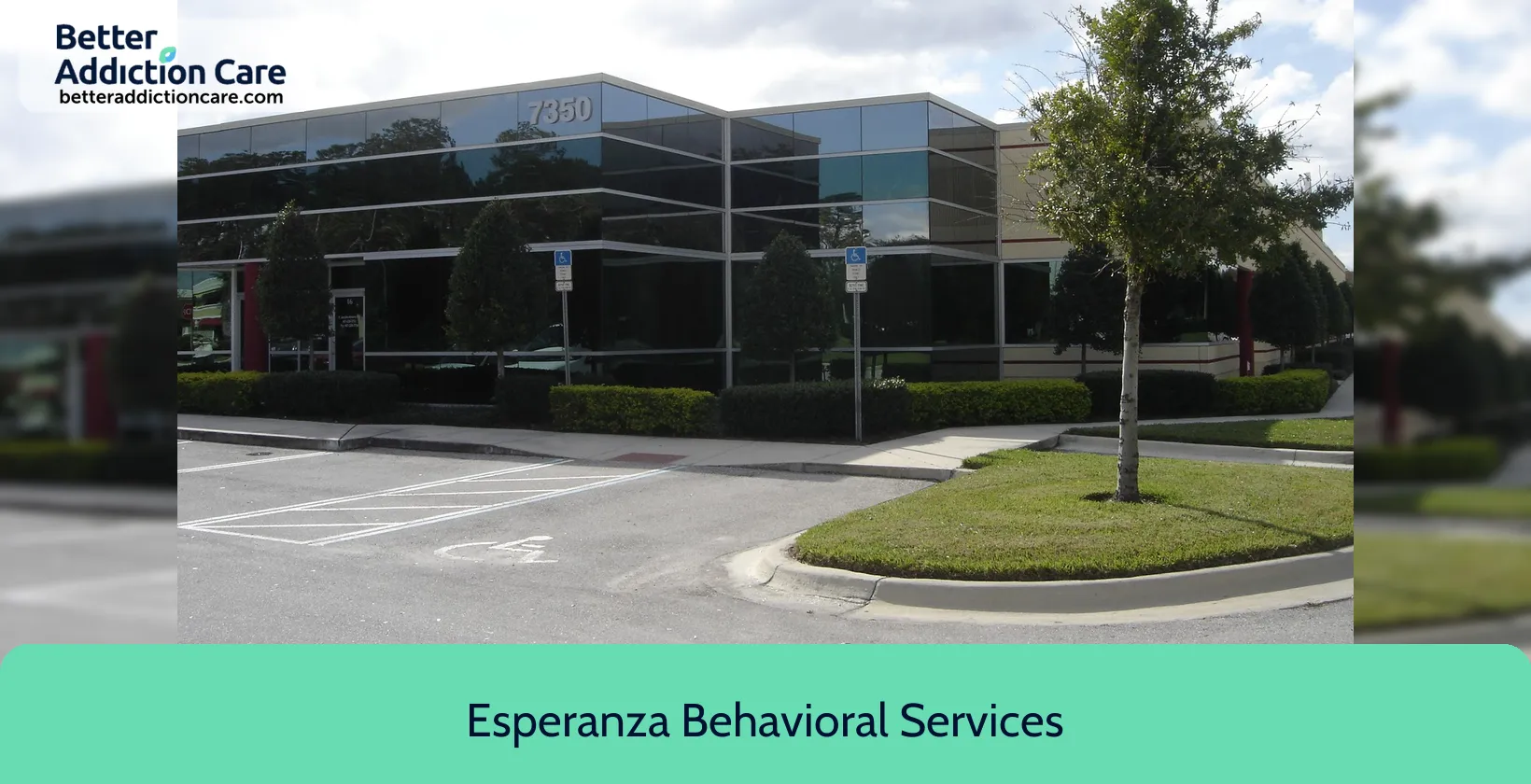
6.62

7.79

6.89
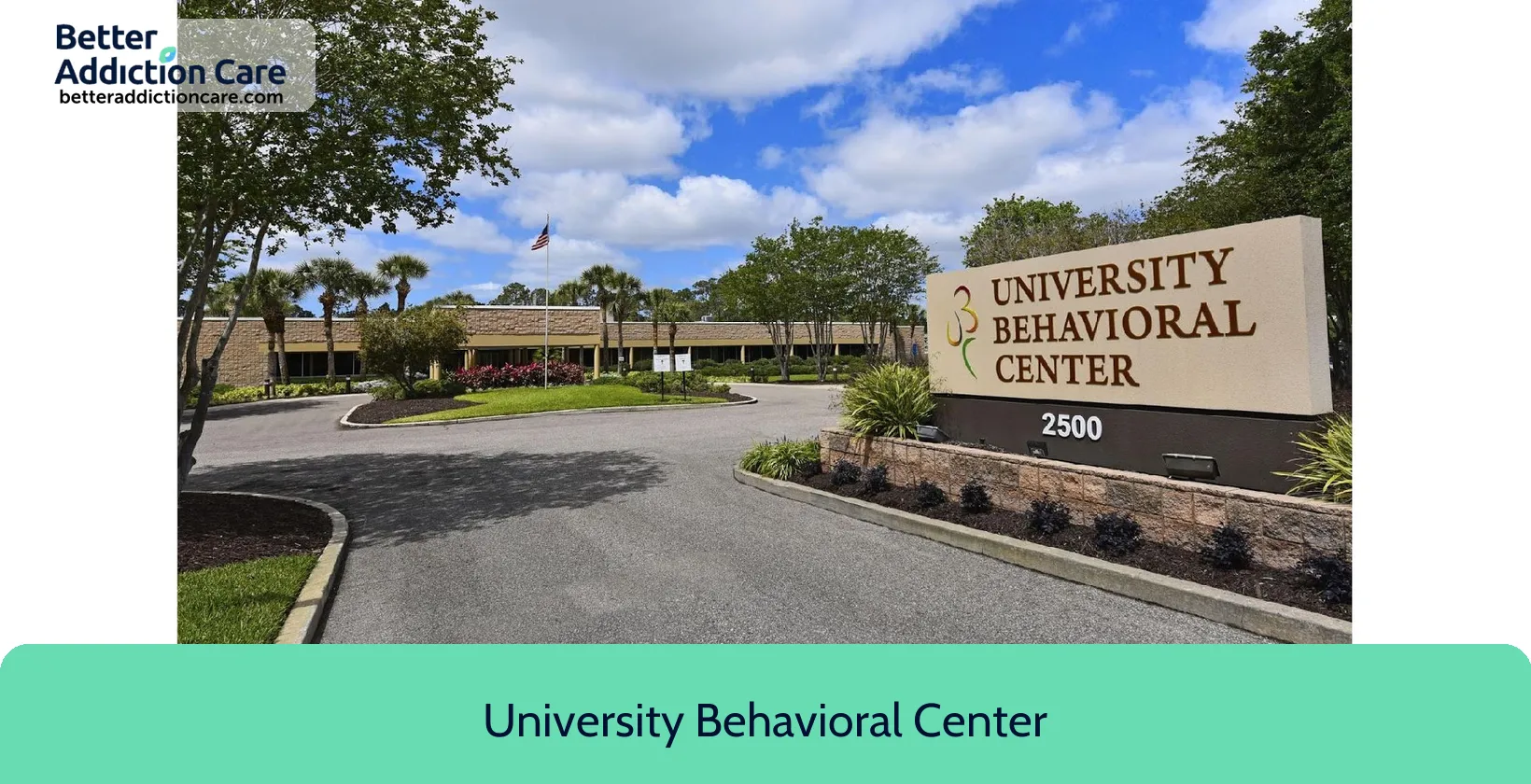
7.35
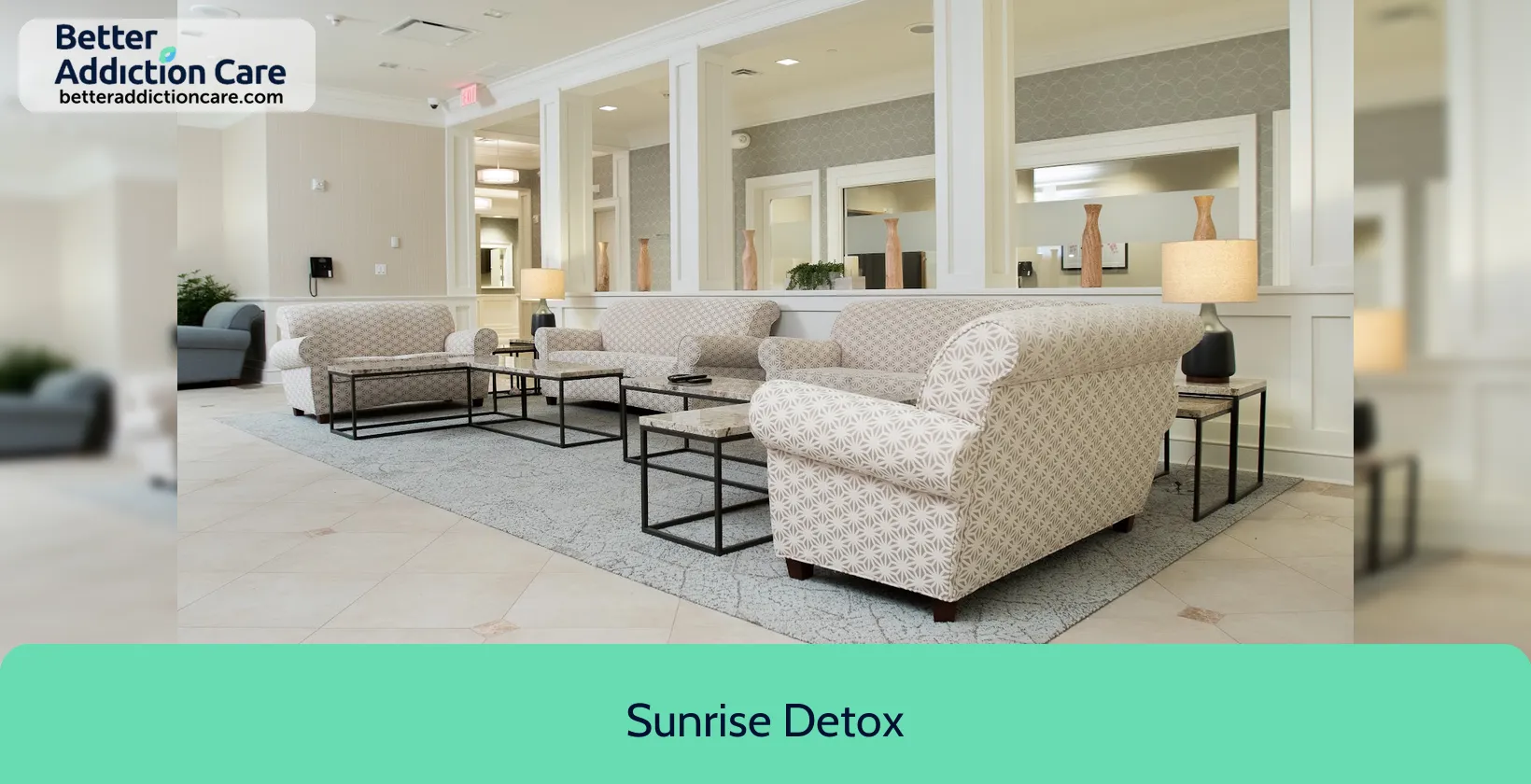
7.49
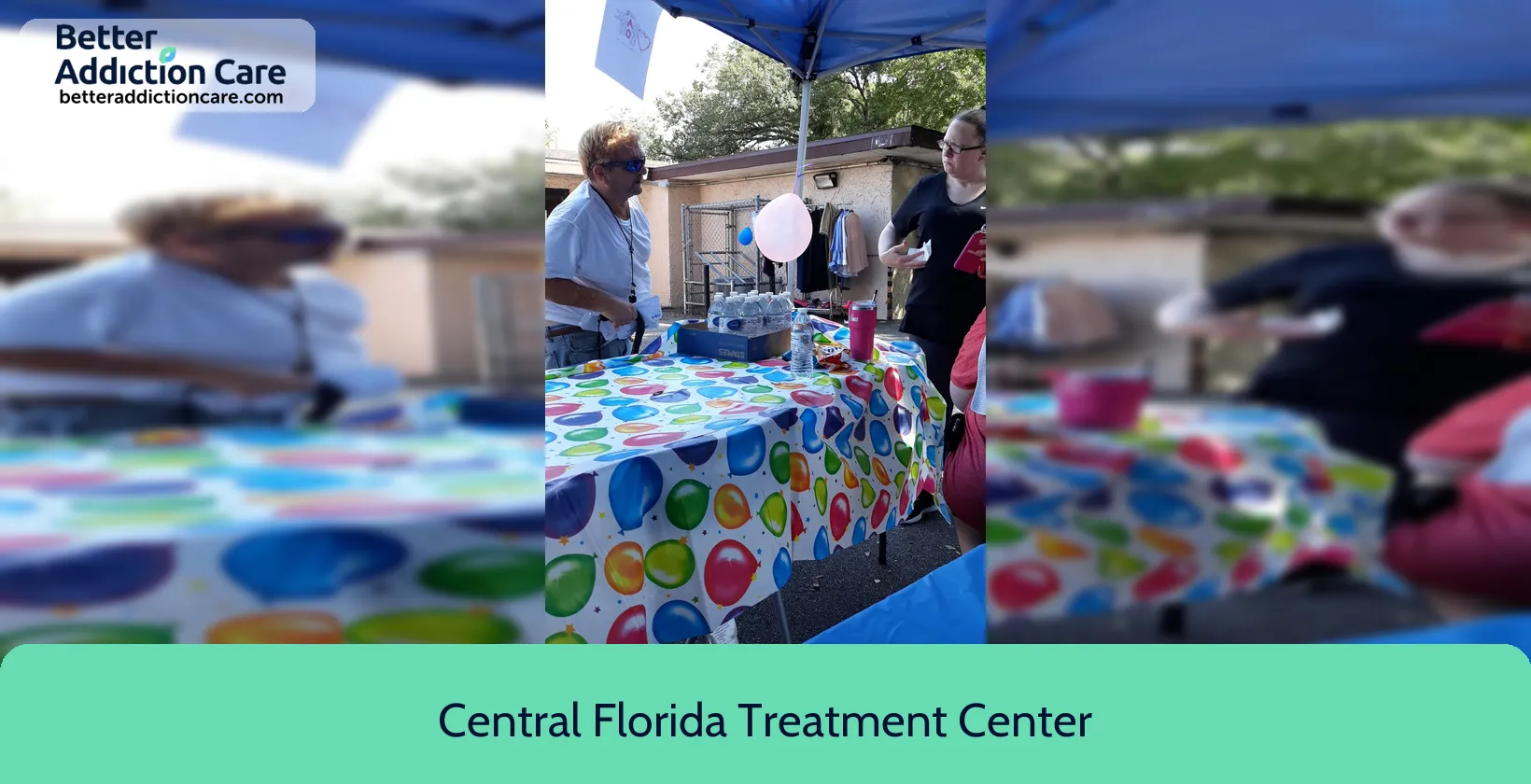
7.10
DISCLAIMER: The facility name, logo and brand are the property and registered trademarks of Central Florida Treatment Center, and are being used for identification and informational purposes only. Use of these names, logos and brands shall not imply endorsement. BetterAddictionCare.com is not affiliated with or sponsored by Central Florida Treatment Center.

